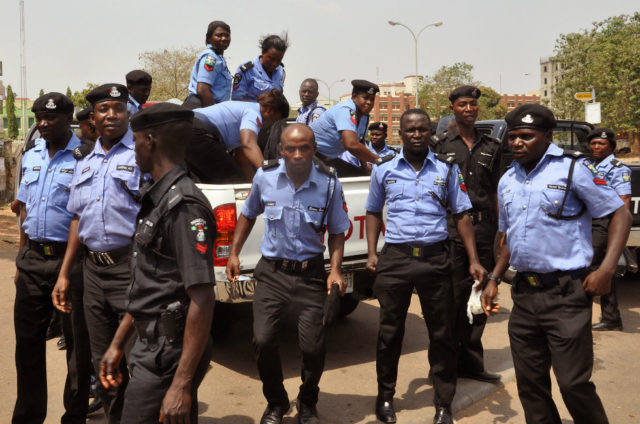Dipo Kehinde/
The peanut earned as salary by policemen in Nigeria is again under the spotlight following a revelation that what a police constable in the United Kingdom (UK) earns in one month is what the counterpart in Africa’s most populous nation earns in two years.
Attention was drawn to the gulf between police salaries in Nigeria and Britain when UK newspapers disclosed that 29-year-old Police Constable Khafi Kareem, a Nigerian-British Met officer in the ongoing Big Brother Naija Pepper Dem TV reality show, risks losing her £30,000-a-year job (N13, 158, 762) because she defied orders not to take part in the show.

Going by the revelation, a corporal in the UK earns over N1million (£2,500) monthly which is twice what the counterpart will earn in a year in Nigeria.
Simply put, when a police constable receives a month’s salary in the UK, that is about two years’ salary of a constable in Nigeria who earns N50, 000 a month.
The UK with 66.9million population is policed by 122, 404 well-paid officers backed with modern technology, while Nigeria with almost 200million people has about 350, 000 ill-equipped and poorly-paid police population.
Because of its technological advancement, the number of police officers in England and Wales has fallen by over 20, 000 between March 2010 and March 2018, while that of Nigeria has been increasing steadily.
Last year, President Muhammadu Buhari approved enhanced salary structure for the police and assured that his administration would continue to give attention to their welfare and operational needs with a view to restoring their lost primacy in the internal security framework of the country.
NewsmakersNG investigations, however, reveal that the police only had a shift in their grade levels which amounted to insignificant addition in their paycheck, as a constable on N45, 000 salary now earns N50, 000 unlike what they experienced under the administration of the late President Umaru Musa Yar’Adua.
Speaking during an audience in State House, Abuja with members of the Nigeria Police Service Commission and the leadership of the Nigeria Police Force on a “Thank You” visit following his approval of Rank Salary Structure Adjustment, by which salary, allowances and pension of policemen will be increased, President Buhari regretted that the inability of the police in their constitutional role as the frontline force in the prevention of crime, had led to military involvement in the maintenance of law and order throughout the country.
He said, “From Taraba to Sokoto, to the South-South, people don’t feel secure until they see the military. I am pleased to make an increase in salary and allowances in the hope that it will increase the performance index of the police and strengthen Nigeria’s internal security system.”
President Buhari observed that the more efficient the police is, the more confident the government and citizens will be.
He added, “The military should be reserved for higher tasks. The police should be able to cope well with the challenges of armed robbery, kidnapping for ransom and such crimes. In every town and village, there is the presence of the police. From all these places, they should be able to forward first-class intelligence to you on which to act.
“There is a need to amplify the question of more men of the police, especially given the condition we are in – emergency in the North-East, pervasive insecurity and abduction for ransom and banditry in many parts of the country.”
Lately, most Nigerians, including governors have been clamouring for state police in the hope of having a well-paid and well-equipped organization that would improve the security of lives and properties.

According to historical documentation, Britain, Nigeria’s colonial master first established the Nigeria Police Force in 1820.
In 1879 a 1,200-member armed paramilitary Hausa Constabulary was formed. In 1896 the Lagos Police was established. A similar force, the Niger Coast Constabulary, was formed in Calabar in 1894 under the newly proclaimed Niger Coast Protectorate. In the North, the Royal Niger Company set up the Royal Niger Company Constabulary in 1888.
When the protectorates of Northern and Southern Nigeria were proclaimed in the early 1900s, part of the Royal Niger Company Constabulary became the Northern Nigeria Police, and part of the Niger Coast Constabulary became the Southern Nigeria Police. During the colonial period, most police were associated with local governments (native authorities). In the 1960s, under the First Republic, these forces were first regionalized and then nationalized.
0





